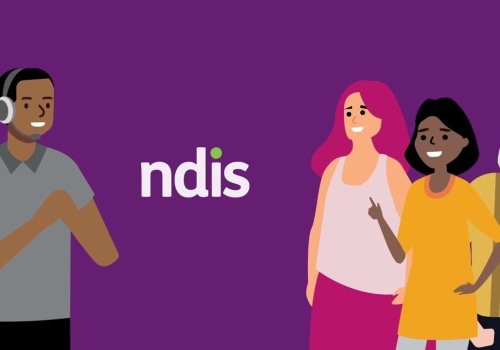Are you considering applying for the National Disability Insurance Scheme (NDIS)? If so, you've come to the right place. This step-by-step guide will walk you through the NDIS eligibility and assessment process and provide you with the information you need to make an informed decision about whether or not NDIS is right for you. We'll cover everything from understanding the application process, to gathering the necessary documents, to preparing for your assessment. Are you considering applying for the National Disability Insurance Scheme (NDIS)? If so, you've come to the right place. This step-by-step guide will walk you through the NDIS eligibility and assessment process and provide you with the information you need to make an informed decision about whether or not NDIS is right for you. We'll cover everything from understanding the application process, to gathering the necessary documents, to preparing for your assessment.
Not Eligible?
If you are not eligible for the NDIS, there are still many other services available to provide support for people with disability. Depending on your individual circumstances, you may be able to access government services, such as those offered through the Department of Human Services or your local government.You may also be able to access community-based and private services. It’s important to note that even if you are not eligible for the NDIS, you may still be eligible for other services. Your best option is to contact your local disability support services to determine what services are available in your area. You can also seek assistance from a range of organisations who provide advice and support on issues related to disability. These organisations may include disability advocacy organisations, disability legal services, and disability peak bodies. In addition, you may be able to access support through employment programs and other initiatives designed to help people with disability enter the workforce.
The Assessment Process
The assessment process for NDIS is designed to determine eligibility for the scheme and to make sure that the right level of support is provided. In order to be approved, applicants must meet certain criteria and provide accurate information about their disability.In order to assess an applicant's eligibility, the NDIS will ask them to provide proof of disability. This can include medical certificates, reports from healthcare professionals, or any other evidence of a permanent and significant disability. The NDIS will also need information about the applicant’s daily activities, including how they go about completing tasks, how they interact with others, and what supports they need. The assessment process also involves an NDIS planner who will assess the applicant's individual circumstances and needs.
The planner will discuss the goals that the applicant wishes to achieve, in order to create a plan that best suits their individual needs. The NDIS planner will also provide advice on what services and supports could help the applicant achieve their goals. Once the assessment process is complete, the NDIS will decide whether or not the applicant is eligible for support. If they are eligible, they will be provided with an NDIS plan that outlines the supports they are entitled to receive. If the applicant is not eligible, they will be provided with information about other services that may help them meet their goals.
Eligibility Criteria
In order to be eligible for NDIS, applicants must meet certain criteria.These criteria are designed to ensure that the NDIS is able to provide meaningful support to people with permanent and significant disability. The criteria are divided into two categories: access and reasonable and necessary support.
Access Criteria
To gain access to the NDIS, applicants must meet the following criteria:- Be an Australian citizen, or have a permanent visa;
- Be aged between 7 and 65;
- Have a permanent and significant disability that is likely to be with them for their lifetime;
- Need support from the NDIS to reduce the impact of their disability on their everyday life;
- Meet the residence requirements for accessing the NDIS in their state or territory.






